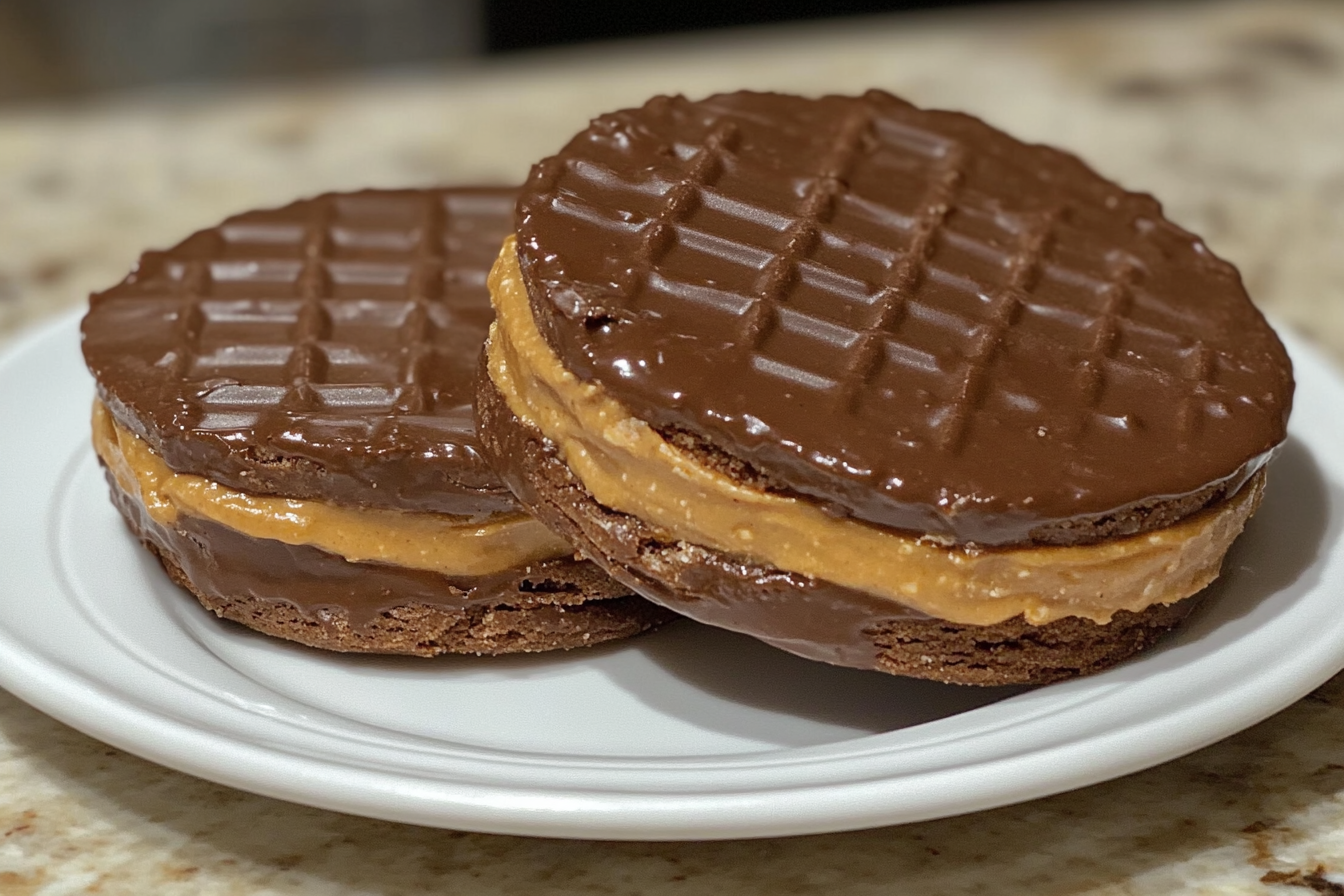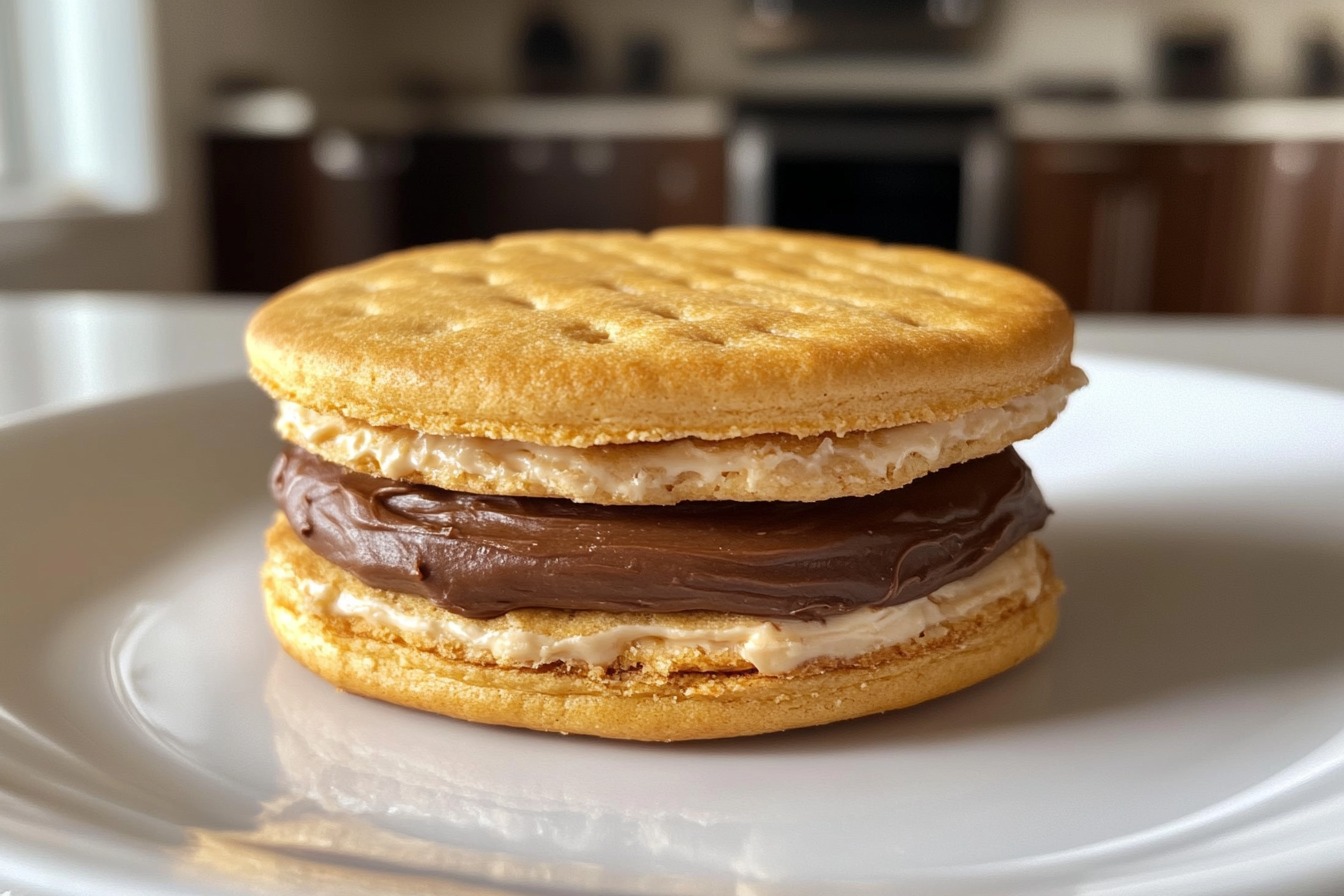Many people ask, is Nutter Butter a healthy snack option? With its peanut butter filling and crunchy cookie exterior, Nutter Butter has become a popular treat. But, does it qualify as healthy when we analyze its nutritional content and effects on health? This article explores Nutter Butter’s ingredients, nutrition facts, and the potential health risks associated with it. Additionally, we offer healthier alternatives to help you make an informed decision.
What Makes a Snack Healthy?
Before diving into Nutter Butter, we need to understand what makes a snack healthy. A good snack offers nutrients, sustains energy, and curbs hunger. Here are a few factors that define a healthy snack:
- Nutrient density: Snacks rich in fiber, protein, and healthy fats help you stay full and energized.
- Low in added sugars: Healthy snacks avoid blood sugar spikes, which prevent energy crashes.
- Healthy fats: Snacks with unsaturated fats from sources like nuts, seeds, or avocados support heart health.
- Minimal processing: Whole foods like fruits, nuts, and vegetables are healthier than processed snacks full of preservatives and artificial ingredients.
Given these factors, let’s see how Nutter Butter fits into the equation.
Nutter Butter Nutrition Breakdown
Each serving of Nutter Butter (two cookies) contains:
- Calories: 140
- Total Fat: 7g (including 2g of saturated fat)
- Sugar: 9g
- Protein: 1g
- Sodium: 95mg
Although Nutter Butter contains fat from peanut butter, it also contains a lot of added sugars and saturated fats. These ingredients can harm your health if consumed regularly. Furthermore, it offers little protein or fiber—both essential nutrients for staying full and maintaining a balanced diet.
Impact of Sugar on Health
Nutter Butter has a high sugar content. Even though 9 grams of sugar per serving might seem small, it can add up quickly, especially if you eat more than one serving. Consuming too much sugar is linked to health problems, such as:
- Weight gain: Sugar adds unnecessary calories, which may lead to weight gain.
- Risk of diabetes: Regularly eating sugary snacks can increase the risk of insulin resistance, a warning sign for type 2 diabetes.
- Energy crashes: High-sugar foods cause quick blood sugar spikes followed by drops, leaving you tired and hungry.
For these reasons, choosing snacks that provide steady energy is a better option. For example, nuts, seeds, and whole grains offer a healthier alternative. If you’re seeking healthier snack ideas, take a look at our guide on making fruit platters. These snacks satisfy your cravings without negative health effects.
Ingredients in Nutter Butter
Let’s examine the key ingredients found in Nutter Butter and their impact on health:
- Enriched wheat flour: This type of flour loses much of its fiber and nutrients during processing. Even though some vitamins are added back, it doesn’t have the same benefits as whole grains.
- Peanut butter: While peanut butter is usually healthy, the version used in Nutter Butter contains added oils and sugars, lowering its nutritional value.
- High-fructose corn syrup: This processed sweetener is often linked to obesity and other metabolic disorders. It’s added to many processed foods to boost sweetness, but it doesn’t provide any health benefits.
- Hydrogenated oils: These oils contain trans fats, which raise bad cholesterol (LDL) and lower good cholesterol (HDL). As a result, they increase the risk of heart disease.
- Artificial flavors: These additives enhance the flavor of processed foods but provide no nutritional value.
Although peanut butter is typically healthy, the sugars and oils in Nutter Butter make it less beneficial. If you want a deeper look into its ingredients, you can explore what Nutter Butters are made of.
Processed Snacks and Health Risks
Processed foods, such as Nutter Butter, contain preservatives and artificial ingredients. Even though eating processed foods occasionally won’t necessarily harm you, regularly consuming them increases the risk of several health issues:
- Heart disease: Many processed snacks contain unhealthy fats, like trans fats, which harm heart health.
- Weight gain: Processed foods are often high in calories but low in nutrients, leading to overeating and weight gain.
- Inflammation: Additives and preservatives can cause inflammation, which is linked to conditions like arthritis and diabetes.
- Digestive problems: Processed snacks often lack fiber, which may lead to digestive issues like constipation.
For these reasons, reducing processed foods in your diet and choosing whole foods, such as fruits, vegetables, and nuts, is a healthier option. For instance, if you’re craving peanut butter, try pairing natural peanut butter with whole-grain crackers. This choice gives you more fiber and protein compared to processed snacks.
The Role of Fats: Good vs. Bad
Not all fats are bad. In fact, fats are essential for your overall health. However, it’s important to understand the difference between healthy and unhealthy fats, especially when choosing snacks. Nutter Butter contains both saturated fats and trans fats, which can negatively affect your heart. Let’s break it down:
- Saturated fats: These fats are found in animal products and certain oils. Although small amounts are fine, eating too much can raise cholesterol levels and increase the risk of heart disease.
- Trans fats: These fats are considered the worst for heart health. They raise bad cholesterol (LDL) and lower good cholesterol (HDL). Trans fats are often found in hydrogenated oils used to extend the shelf life of processed foods.
- Unsaturated fats: These are the healthy fats found in nuts, seeds, avocados, and olive oil. Unlike saturated fats, unsaturated fats help reduce bad cholesterol and support heart health.
If you prefer peanut butter but want to avoid unhealthy fats, try using natural peanut butter with fruits or whole grains for a healthier snack.
Healthier Snack Alternatives to Nutter Butter
While Nutter Butter may be tasty, there are healthier alternatives that offer similar flavors without the negative health effects. Here are some nutritious options:
1. Homemade Peanut Butter Cookies
Instead of buying processed cookies, make your own peanut butter cookies at home with natural ingredients. This way, you control what goes into your snack.
2. Natural Peanut Butter on Whole Grain Bread
Pairing natural peanut butter with whole grain bread provides more fiber and nutrients compared to processed snacks like Nutter Butter. Additionally, whole grains help with digestion and offer long-lasting energy.
3. Peanut Butter and Fresh Fruit
Pairing peanut butter with apple slices, bananas, or celery is a simple, healthy snack. In addition, it combines healthy fats, fiber, and natural sweetness, giving you a balanced snack.
4. Protein Bars with Natural Ingredients
Some protein bars contain peanut butter but are made with fewer processed ingredients. However, be sure to check the labels to avoid added sugars.
5. Nut and Fruit Trail Mix
Make your own trail mix using nuts, seeds, and dried fruit. This snack provides healthy fats, fiber, and antioxidants, making it a satisfying and nutritious alternative to processed cookies.
Mindful Snacking and Portion Control
Even though Nutter Butter can be enjoyed occasionally, it’s important to practice portion control and mindful snacking. Here are a few tips to help:
- Limit your portion size: Stick to one or two cookies, and avoid eating straight from the package to prevent overconsumption.
- Pair with healthier options: If you crave Nutter Butter, combine it with nutrient-rich foods like fruit or nuts to create a more balanced snack.
- Monitor how often you eat processed snacks: Processed snacks like Nutter Butter should be occasional treats, not a regular part of your diet. Instead, focus on whole foods for daily snacking.
For more ideas on balanced snacking, check out our article on milk and cookies, which explores how to combine healthy ingredients and control portion sizes.
FAQs: Nutter Butter and Healthy Eating
Is Nutter Butter good for weight loss?
No, Nutter Butter isn’t a good choice for weight loss because it contains too much sugar and fat. Instead, choose snacks high in fiber and protein to keep you full and support weight loss.
Can Nutter Butter fit into a balanced diet?
Yes, you can enjoy Nutter Butter as part of a balanced diet, but only if you eat it in moderation. However, it’s best to pair it with nutrient-rich foods like fruits and vegetables to balance your overall intake.
How many Nutter Butter cookies should I eat?
It’s best to limit yourself to one or two cookies to avoid eating too much sugar and unhealthy fat.
Are there healthier versions of Nutter Butter?
Yes, you can make healthier versions of Nutter Butter at home using natural ingredients like oats, peanut butter, and honey. These versions are more nutritious and contain fewer processed ingredients.
Is Nutter Butter gluten-free?
No, Nutter Butter contains wheat flour, which makes it unsuitable for those with gluten sensitivities or celiac disease. However, you can find gluten-free alternatives made with almond flour or other gluten-free ingredients.
Conclusion: Is Nutter Butter a Healthy Snack?
While Nutter Butter is a delicious snack, it doesn’t meet the standards for a healthy option. In short, its high sugar content, processed ingredients, and lack of essential nutrients make it a treat that should be enjoyed occasionally. For those seeking healthier peanut butter snacks, try homemade options or natural peanut butter paired with fruits or whole grains for better nutrition.
If you’re looking for more inspiration for nutritious snacks, check out our guide on milk and cookies, which provides tips on balancing flavor and health in your daily snacks.



